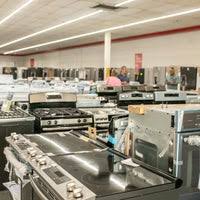Overstock liquidators are a new participant in the ever-changing retail sector, quietly but significantly changing the game. These unsung shopping heroes are rewriting the rules, providing a slew of benefits that go far beyond basic cost reductions. Let us investigate the causes behind overstock liquidators’ growing prominence and how they are transforming the retail scene for common consumers. The opportunity to uncover unprecedented savings is at the heart of the overstock liquidation revolution. These businesses specialize in dealing with excess inventory that traditional merchants must shift rapidly. This surplus frequently consists of brand-new, high-quality things that have been marked down significantly, allowing people to enjoy high-quality items without breaking the bank. The appeal of substantial savings is a main driver of the popularity of overstock liquidators.
A World Of Possibilities At Your Fingertips
Overstock liquidators stand out with their ever-changing and diverse product range, setting them apart from traditional stores with static inventory. Continuously receiving fresh overstock shipments, these liquidators offer a dynamic and captivating shopping experience. The influx of new items allows customers to uncover unexpected treasures, making each visit an exciting adventure. The thrill of discovery, combined with the constantly evolving inventory, captivates shoppers, keeping them eagerly exploring the store. This unique characteristic creates a sense of anticipation and excitement for patrons as they navigate the ever-shifting landscape of available products. Overall, overstock liquidators provide a distinct and engaging shopping environment, making them a preferred choice for those seeking variety and excitement in their retail experience.
A Sustainable Approach To Shopping
Choosing overstock liquidators goes beyond mere cost savings; it encompasses environmental consciousness. Consumers actively participate in lessening their environmental footprint by purchasing items that might otherwise become waste. Overstock liquidators assume a crucial role in the circular economy, helping alleviate the environmental repercussions of surplus inventory disposal. This eco-friendly dimension adds allure for individuals seeking socially responsible options without sacrificing quality. Essentially, opting for overstock liquidators offers a dual advantage economic savings and an environmentally conscious choice aligning with the expanding trend of sustainable consumerism. This approach reflects a broader shift toward mindful consumption, where individuals make choices that benefit both their wallets and the planet, contributing to a more sustainable and responsible global marketplace.
Business Models That Can Be Modified
Overstock liquidators have adaptable business structures that serve both individuals and companies. These stores are a refuge of amazing offers for budget-conscious shoppers. Overstock liquidators are a trusted partner for firms wishing to dispose of surplus goods while also improving their inventory management operations. This versatility establishes overstock liquidators as an important connection in the broader retail ecosystem, linking surplus items with customers and businesses looking for value.
Discovering Community-Based Shopping
Overstock liquidators inject the joy of in-person, community-driven shopping into an age overshadowed by online transactions. Roaming aisles, engaging in conversations with fellow shoppers, and uncovering hidden treasures offer a connection often absent in virtual platforms. The communal essence of overstock liquidator establishments cultivates a collective excitement for unearthing incredible deals, amplifying the gratification of the shopping journey. These businesses thrive on fostering a shared enthusiasm among consumers, accentuating the overall satisfaction derived from the shopping experience. In an era saturated with digital interactions, overstock liquidators carve out a space for genuine connections and the thrill of discovering discounted treasures, reminding us of the communal pleasure derived from traditional, brick-and-mortar retail experiences.
Frequently Asked Questions
Q: Can Overstock Liquidators Be Relied On To Provide High-Quality Products?
A: Without a doubt. Overstock liquidators primarily deal with surplus inventory from well-known brands and shops. The products are often brand-new and of great quality, providing substantial discounts without sacrificing standards.
Q: How Frequently Does The Inventory At Overstock Liquidator Stores Change?
A2: Overstock liquidator stores boast an ever-evolving inventory, ensuring a dynamic shopping experience. Regular influxes of new shipments introduce captivating and diverse product offerings. Embrace the thrill of discovery as you explore a constantly changing selection, making each visit a unique and exciting opportunity to find something extraordinary.
Q: Are Overstock Liquidators Only For Frugal Shoppers?
A: No, overstock liquidators serve a diverse spectrum of customers. While they offer great prices for budget-conscious buyers, their broad product selection draws individuals hunting for one-of-a-kind items as well as corporations wishing to maximize their inventory.
Q: Can Companies Gain From Collaborating With Overstock Liquidators?
A: Certainly. Overstock liquidators offer firms an efficient solution to dispose of excess inventory, aiding in improved inventory management and cost recovery. This collaboration proves instrumental for companies seeking to streamline operations and optimize financial resources.
Q: How Do Overstock Liquidators Help To Ensure Sustainability?
A: Overstock liquidators contribute significantly to the circular economy, preventing excess goods from reaching landfills. Opting to buy from these outlets promotes a sustainable lifestyle, reducing waste and environmental impact. Supporting these businesses aligns with eco-friendly practices, fostering a more responsible approach to consumption and resource utilization.


